Brand & Interesting Facts
|01/09/2024
A little story about knives, denim and ceramics
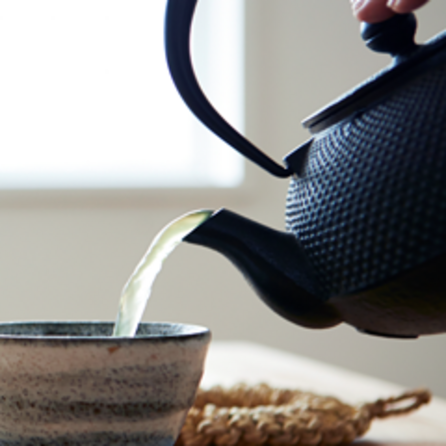
When it comes to extraordinary craftsmanship and the unwavering pursuit of perfection, there’s no country on earth that can really compete with Japan. Japanese products have a global reputation for quality, exquisite attention to detail, unique design and the clever fusion of tradition and innovation. From traditional arts like kabuki and tea ceremonies to modern wonders like the Shinkansen high-speed train network and state-of-the-art electronics – all of these reflect a cultural ethos that highly values excellence and precision.
In addition to the most leading exports of whiskey, denim, knives, ceramics and the finest Kobe beef, many other products from Japan have set entirely new standards of quality for the European market.
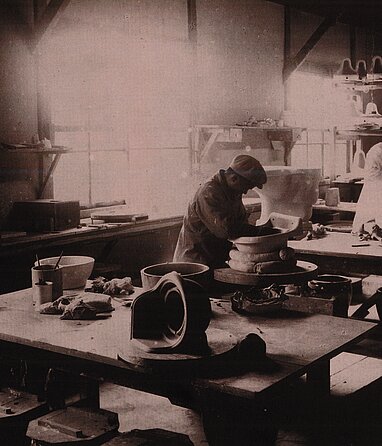
Japanese artisanry is based on the concept of “shokunin”, which essentially means “master of one’s craft”. Shokunin are highly respected artisans who dedicate their lives to perfecting their art. Whether whiskey distillers, denim makers or expert potters, these shokunin embody the spirit of dedication and discipline to create products of exceptional quality.
The pursuit of perfection in Japanese artisanry isn’t something that anyone can achieve overnight. It takes years, often decades of intensive learning, practicing and refining to become an expert in one’s craft. This journey shows the determination and commitment that resonates in each product, making it something truly special.

A sharp knife is an essential element in every kitchen – indispensable to anyone who cooks. There are plenty of knives made in different countries, but Japanese knives are the ultimate cutting tools for use in home and professional kitchens.
There’s a wide variety of Japanese knives, including damascus, santoku, gyuto, nakiri, deba and many more. Why are there so many different types? Because they were each developed for specific purposes. Japanese knives are the perfect solution for nearly every cooking challenge – from fine slicing and dicing to fileting fish or meat.
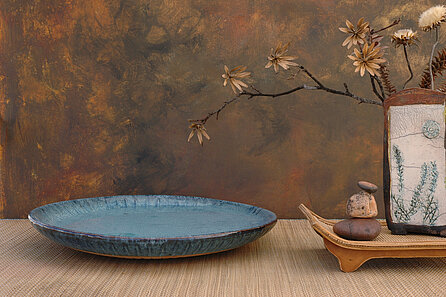
Ceramic production is deeply ingrained in Japan’s rich culture and tradition. The art of pottery was passed down from generation to generation as experts passed their knowledge and skills to their apprentices. This process helped to preserve ancient techniques and aesthetic values while still creating space for innovation and new styles. The tradition of artisanry in Japanese ceramics gives each piece its own unique personality and character. There’s an astonishing variety of styles, from straightforward, classic designs to more intricate, artistic works. Arita (also known as Imari), Hagi, Mashiko and Kutani ware are internationally known for their graceful feel and uniqueness. Each style represents its own history and the culture of the region in which it is produced. Admirers love Japanese ceramics for their understated elegance – whether a simple tea bowl or an elaborately decorated collection of vases.
The history of Japanese denim production dates back to the 1950s. At this time, the Japanese started buying old shuttle looms from the US to manufacture denim. The passion and dedication to this craft has evolved ever since. Many Japanese denim makers still use traditional production methods, like weaving on age-old shuttle looms and producing traditional selvedge denim with the characteristic seam. This precision artisanry and attention to detail in Japanese denim production results in extraordinarily high-quality, exclusive jeans.
Materials play an important role in ensuring the high quality of Japanese denim. Japanese manufacturers often use rare, top-quality types of cotton, like the famed Zimbabwe cotton or American Pima cotton. These strains have extra long fibres which make the jeans especially durable yet soft. Special dyeing techniques like traditional indigo dyeing often give the jeans a deeper, richer colour.
"Materials play an important role in ensuring the high quality of a product"
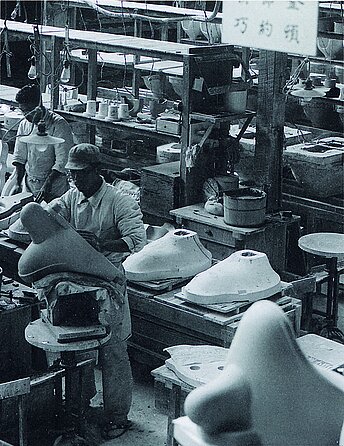
Japanese artisanry has a long history that dates back to ancient times. Even with their strong ties to tradition, artisans aren’t opposed to modern methods – on the contrary. They’ve incorporated innovative technologies and materials into their work to improve the quality and efficiency of their products without losing the essence of their traditional techniques.

Japan has a long history and culture centred on tea. Having a teapot made of ceramic or iron is a symbol of Japanese elegance. TOTO’s sanitary ware is just as impressive, featuring special glazes and a surface that repels waste and bacteria. The company is setting new standards in hygiene, winning over European customers with the extraordinary cleanliness and comfort of their products.
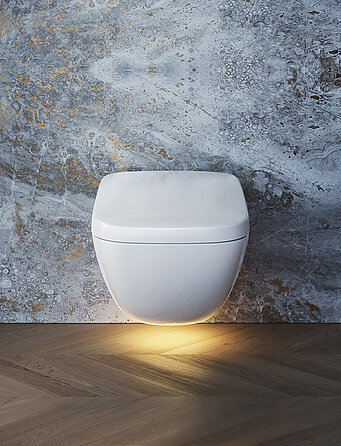
TOTO’s high-end NEOREST collection incorporates state-of-the-art technology into the traditional understanding of Japanese quality in an intriguing way. Appreciation for artisanry and perfection down to the tiniest detail is deeply ingrained in Japanese culture. NEOREST reflects these traditional values in the exacting precision and commitment dedicated to its production. NEOREST is made of only the finest materials, with meticulous workmanship and the pursuit of unsurpassed functionality – reflecting Japan’s centuries of outstanding artisanry while incorporating state-of-the-art sanitary technologies. The result: a product line that meets the highest expectations of quality while embodying the spirit of Japanese tradition and excellence.
The new NEOREST WX is the latest-generation WASHLET® and the most advanced. It is the epitome of Japanese cleanliness and hygiene, inspired by the theme: Perfection and luxury in the bath.
It brings an extraordinary aesthetic to the findings and experiences from decades of research and development. TOTO’s designers successfully created an entirely new, exclusive design: seamless, organic, flowing. It wasn’t easy to piece the different ceramic and plastic materials together in a seamless way. It required the unique expertise and many years of experience with WASHLET®.

TOTO created the WX model – with its near-perfect design, exhaustive development process and exclusive materials – especially for the luxury segment.
It includes advances in both technology and design – even a new-and-improved base ceramic material.
This made it possible to create even more precise, delicate and elegant lines. The lid and ceramic bowl look as if they’re just one piece.
The perfect design meets perfect technology: NEOREST WX incorporates all TOTO hygiene and comfort features. Especially TOTO’s EWATER+ ensures maximum hygiene and cleanliness.